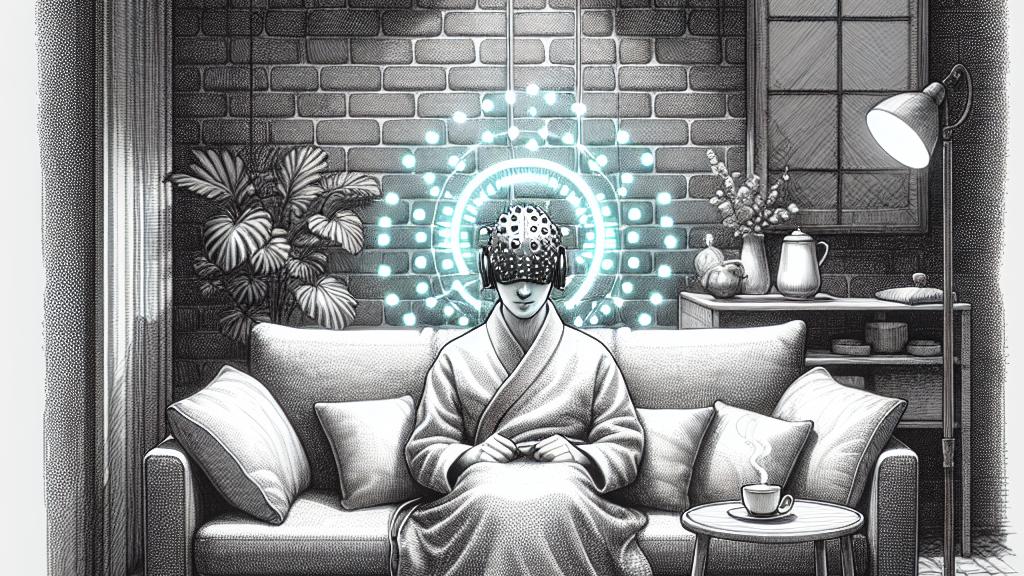Innovative Home-Based Brain Stimulation for Depression Treatment
Overview
- Introducing a groundbreaking device that delivers gentle brain stimulation to effectively treat depression.
- Over 150 participants in an extensive trial experienced significant benefits from using the device at home.
- The results reveal an impressive improvement for those battling treatment-resistant depression.

Revolutionizing Depression Treatment from the Comfort of Home
A remarkable clinical trial conducted in the United States has set a new standard in treating depression, showcasing how technology can transform mental health care. In this innovative study, more than 150 participants utilized a device that resembles a swimming cap, designed to deliver transcranial direct current stimulation (tDCS) to crucial brain areas responsible for mood regulation. This non-invasive therapy is especially critical for the one-third of individuals struggling with depression who find no relief from traditional methods such as antidepressants or psychotherapy. The ability to conduct these sessions at home not only enhances accessibility but also empowers patients to take control of their mental health in a familiar and comfortable environment.
Eye-Opening Results from Groundbreaking Research
The outcomes of this trial are nothing short of eye-opening. After ten weeks of regular use, participants who engaged in tDCS reported a significant decrease in depressive symptoms compared to the control group. Specifically, the treatment group saw their depression scores drop by an average of 2.27 points more than those in the control group. Imagine the impact of such findings! Nearly 45% of participants using the tDCS device reported a remarkable reduction in symptoms, contrasting sharply with approximately 22% in the control group who experienced similar changes after using a sham device. The hope and relief that this breakthrough could bring to individuals suffering from persistent depression cannot be overstated—it represents a turning point in their recovery journey.
Exploring the Future: Personalized Brain Stimulation Treatment
As we step into the future, the potential of tDCS continues to spark intrigue among researchers and mental health professionals alike. They are enthusiastic about the possibility of personalizing treatments to better suit individual needs, and they recognize that adjusting the current intensity or frequency might lead to even greater improvements. Although previous studies have shown mixed results, the compelling data from this trial highlights the promise of home-based brain stimulation. It paves the way for innovative alternatives to conventional depression therapies, particularly for those for whom standard treatments have failed. This innovation not only stands as a testament to the advancements in science but also brings renewed hope to countless individuals navigating the challenging waters of depression. The ongoing journey of understanding mental health treatments is intricate, yet breakthroughs like tDCS illuminate the path toward brighter, more hopeful futures.

Loading...